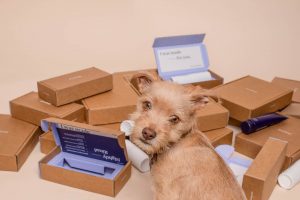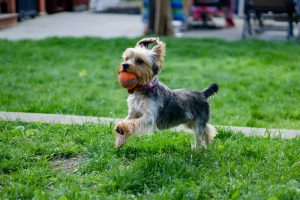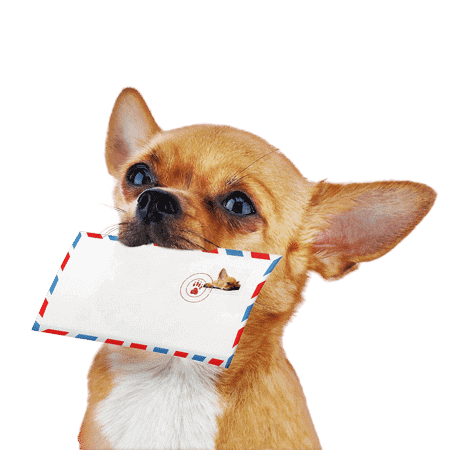Having a dog is great! But having a dog that doesn’t get along with anyone, neither human nor canine, is difficult to manage daily.
Let’s take a look at two important subjects in dog training: the socialization of the puppy and the socialization of the adult dog.
Socialization of the puppy
You should know that the best time to socialize a puppy is between 1 and 3 months old. This is the age when your puppy will be the most curious and when you will have to make him live a maximum of different situations so that he will consider them as “banal” when he becomes an adult: meet other dogs, cats, horses, chickens, ducks, people of all sizes, all ages, all sizes, young children, more “active” children, various environments, the city, the country, public transportation, the car, the vacuum cleaner, the hairdryer, water, etc. The list could be very long. In short, get your dog used to everything he will experience during his life, be imaginative and foreseeable.
Be careful, always be vigilant because to make your puppy live many things, it is well, but it is still necessary that it always happens positively for him. Indeed, the traumas experienced during this period can have serious consequences on his future. It is important to realize that all the events experienced during this period will be like a hard disk that will serve as a database for his future life. You must therefore make sure that this baggage is solid, benevolent and above all, rich!
And to do this, your attitude is essential: you must be sure of yourself and reassure your puppy. It’s not about being afraid of a big dog that wants to come and play with your puppy, you see? Don’t fall into the trap of always wanting to protect your puppy by reassuring him, carrying him, petting him because you will then make the fatal mistake of validating him in his fear.
Your puppy must live his own experiences. Everything must be positive; if you don’t feel a situation, if you are not sure that it will be positive, avoid it immediately. It’s up to you to know how to control each situation and to organize meetings with puppies, humans, balanced adult dogs that you know and with whom you are sure that it will go well. And finally, to do socialization well, new experiences should be short but repeated many times.
On the other hand, you probably think you can’t do all these things to your dog when he is one month old, since the legal age of sale is two months. That’s right! Therefore, you must be very careful with the kennel you choose and favour a kennel that will start this work for you and your puppy. Then, you will have only one month to give everything.
I would also like to point out that after the age of 3 months, we prefer to leave the puppy alone. I am not saying to leave him locked up at home; on the contrary, but we will not “force” him to go out and have new experiences. In any case, if you “force”, you will observe a clear difference because, after three months of age, your puppy will become much more suspicious of new people or new dogs. It is simply a “survival reflex” to protect himself.
Moreover, I would add that you should not get into paranoia, often conveyed by veterinarians and not very serious websites: do not leave your dog locked up at home because he has not yet had his booster shot or whatever other reason. NO! Indeed, you will make sure not to take your puppy to places that are too “dangerous”, but let’s be serious for two minutes: this behaviour can have heavy consequences on the future because it would mean that during his first weeks with you, your puppy will only have seen your living room and possibly your garden if he is lucky…
The essential points of puppy socialization
Be sure to choose a kennel that offers the beginning of socialization work with the litter’s puppies.
Don’t wait to start socialization once your puppy is at home; you only have a month!
After three months, leave your puppy alone, don’t force new experiences.
Until he is three months old, your puppy should only have good experiences, and it is up to you to find the right people, dogs and other species for this delicate job.
Also, work on your attitude. It must finally be exemplary, don’t be afraid, don’t reinforce your dog’s fear by trying to overprotect him: you will only make the situation worse.
All-new experiences should be short but repeated as often as possible.
Let your puppy rest. Don’t stimulate him too much because he remains a “puppy” who needs to recover (especially if you give him a maximum of new experiences every day).
Don’t wait until the end of the veterinary recalls starting socialization. It will be too late.
Socialization of the adult dog
Finally, I think it is also useful to talk about the socialization of the adult dog. Because yes, this article is, above all, a preventive article about what you should do with a cute little puppy who is completely untrained. But if you have an adult dog that has never really been socialized (I’m thinking in particular of farm dogs that generally see nothing but their yard or the surrounding fields) or a dog that has been poorly socialized, i.e. that has only lived through traumatic experiences. We talked about the “hard drive” at the beginning of this article, and well, for these dogs, it is as if the hard drive was saturated with viruses.
We can then distinguish two disorders.
A developmental disorder: primary dissocialization, which means that the puppy has never been socialized during its development. To be honest, developmental disorders are very difficult to “fix” because you can’t go back on what was missing during the first weeks of a dog’s life.
A behavioural disorder: secondary dissocialization, which means that the puppy was well socialized but that the work of socialization was not continued and that the dog in question, once adult, simply forgot the canine codes.
Some tips for “are socializing an adult dog
Contact a specialist in canine behaviour immediately and/or ask your veterinarian for advice. There is always a solution, but it must be adapted according to your dog’s liabilities. But under no circumstances should you attempt to resocialize your dog alone.
For your dog’s safety and that of others: a muzzle must be worn if your dog becomes aggressive towards other dogs or even (and especially) towards humans. I advise you to use the Baskerville muzzle perfectly adapted to reeducate a muzzled dog (because you can give treats/rewards through the muzzle).
No meeting should be made at random; choose a dog of the opposite sex, a balanced dog and especially an adapted environment, that is to say neutral, not stressing and vast.
As soon as your dog “reacts” either to the sight of another dog or a human:
Move away until your dog is in its comfort zone.
Refocus your dog on you.
- Teach it to look at you and congratulate it warmly when it cooperates.
You need to be very observant and analytical about the signals your dog is sending. That’s why it’s important to get help from a dog behaviour professional to avoid misinterpreting dog signals. I am thinking in particular of dogs that wag their tails, and this is not necessarily a sign of joy and happiness: be vigilant!
Take your dog out regularly. And yes, don’t get into the following vicious circle: my dog is not sociable, so I don’t take him out, so he is less and less friendly. The more you take him out with a good attitude, controlled encounters and adapted reeducation work, the more your dog will get used positively to the presence of other dogs (or humans).
Socializing a dog, the answers to your questions :
Walking your dog
Baby and dog cohabitation
How to make a dog and a cat live together
Reassuring a dog that is afraid
Your dog is afraid in the car. What to do?
Why does my dog eat poop?





